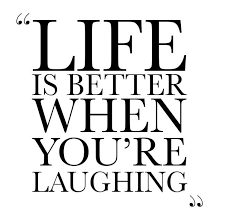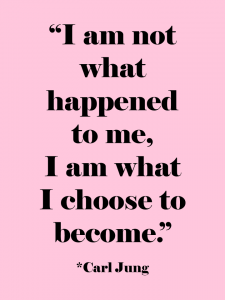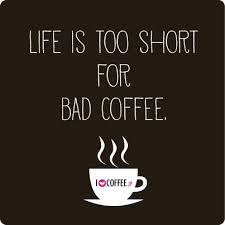“If you want the rainbow, you need to deal with the rain” – John Green
Our brains, like the rest of our bodies, are designed to heal and regenerate. Just as our lungs are designed to breathe out the bad air and in the good air, our minds need to deal with the bad thoughts to make way for healthier new ones. It’s not just the extreme of holding our breath that will cause our lungs to explode, it’s the breathing in of toxins that causes long-term oxygen deprivation and cell death. So too it is with ignoring our pain, from small annoyances to evenets that makes us misery, that deprives us of the ability to engage fully in the good parts of our lives and grow.
You cannot move on to a positive emotional state while your brain is filled with misery. Nor can you either pretend it didn’t happen or plaster it over with positivity, which is like holding your breath. Eventually the pressure of the pain will burst through, as a major illness. You need to jump (or sytemtically tiptoe) into that misery to excavate the old, to open the space for the new. Our brains only have so much capacity to think (emotions are just old thoughts) and if, it is full, it cannot take in new happy thoughts.
But even worse, our brains attach new thoughts to similar old ones for efficiency. We accept new thoughts fastest that fit well with our existing ones and easily forget new ones that there is nowhere to file. If your brain is filled with pain and fear it will have a hard time fitting the lovely positive new ones anywhere and certainly not as equals.
Spending an hour each day doing ‘positive’ thinking may have no effect on your mood if those thoughts have nothing to latch on to. Meanwhile your brain is strengthening fear and pain from just a minute’s negative processing. We need to resolve (remove/break/disolve) the link between the historical events and our current survival so that your brain can move out of survival and be free for growth.
 Resolved is different from forgotten. You can resolve painful emotions around events and still rememeber what happened. When you think back to the event, there may even be some residue negative charge/emotion, but this is akin to scar tissue. The scar is not going to spread into something more dangerous by continuing to influence your thoughts and actions on a daily basis.
Resolved is different from forgotten. You can resolve painful emotions around events and still rememeber what happened. When you think back to the event, there may even be some residue negative charge/emotion, but this is akin to scar tissue. The scar is not going to spread into something more dangerous by continuing to influence your thoughts and actions on a daily basis.
How To Resolve Your Old Negative Emotions, in this order;
1. Have them
Feeling it again, over and over, until the feelings lessen. Think about it, cry, talk about it, stomp your feet, rage against the gym equipment etc. If you cannot find specific events to focus on yet you are feeling down you can do a general emotion dump. My favourite technique for this is EFT and the Ortner’s are my favourite practitioners of this. https://www.thetappingsolution.com/
2. Get professional help
If you have suffered any of these life events; an assault, loss of a significant other through divorce or death, public humiliation, bankruptcy, been fired etc, it is best to do this with a medical professional such as a psychologist or clinically qualified therapist, not a life or business coach. Do not underestimate the depth of these emotions because you appear to be ‘coping’ or it wasn’t as bad as what other people have experienced. Any event that endangers our survival; physically, emotionally or financial will dig into the deepest level of our subconscious because survival is the primary function of the brain and takes priority every minute of every day over everything else.
Regardless of the event, if you feel like you are bordering on depression, or you have in ANY WAY been limiting your interaction with others; stopped applying for new jobs or dating or even engaging less in a sport or social activity, absolutely see a medical professional.
3. Get systematic
If the emotional charge is lower, examine your memories in a systematic detailed way. Put your thoughts under a microscope and engage the logic circuits. A significantfunction of our survivalcapacity is problem solving,so start by laying out the problem in detail.
This could be by writing a list or journaling exactly what happened. Get really detailed. Like super detailed, include every tiny thing you can remember, time of day, weather, smell, what you were wearing. Or, if there was a single significant event, write it out as a play script including dialogue and staging directions to the actors.
Your brain’s capacity for logic will kick in to clarifying which aspects of this event are still dangerous and then will start searching subconsciously for a solution to prevent any future consequences.
4. Rewrite history
I have used the write a ‘script for a play’ a few times. If, I first have a good cry, stomp, EFT session before starting to write, I usually find I can no longer recall all the issues in enough detail to finish the play. I then continue writing it as fiction and editing the factual parts I can still recall with what I would have preferred and just having fun with it. These improved fictional edits then stay in memory ready to do or say the next time something similar happens.
Your brain does not know the difference between; thoughts that you imagined and replay compared to memories of events that happened if they are of equal detail. Therefore, imagining yourself doing something in detail is a great way to prepare for doing it better. Athletes actively do this all the time. It’s not about imagining it ending well, the victory, rather imagining DOING it well. See your legs pumping faster than ever before as you run the race and then standing on the podium receiving your medal.
GETTING HAPPY BY HAVING MORE HAPPY THOUGHTS
Fill Your Day With Good Stuff.
Scientific research shows smiling and laughing have positive effects on mental and physical health. Stay alert to things to smile and laugh at. Smile and laugh, out loud, longer when these things happen.
Actively create better content by adding many, even tiny, events that make you happy. Create a list of 5 positive little things that you can spread through every day regardless of who you are with or what other obligations you have for that day. One of mine is to buy a coffee from my favourite café and really savour that first taste. Your day might allow you to listen to great music on headphones or step out into nature for a few minutes.And when you have time you might; watch feel-good movies and read books that leave you feeling inspired or filled with hope. Watch Frozen 12 times, even if you don’t have kids.
The Power Of Gratitude’s
The reason gratitude’s work way better than ‘positive’ thinking or affirmations is because you are reinforcing things that have happened to you and are already fully formed in memory. There are existing memories to easily attach the positive gratitude thoughts too. Gratitude’s don’t work if you cannot think why these events are positive. Your brain is not an idiot. The generic ‘everything occurs for a reason’ is not enough. You must actually see something positive to feel happier.
Having a daily evening gratitude ritual is a great way to resolve potentially negative daily events by analysing them for positive content to be grateful for. It will also change the ‘file to long-term memory’ balance while you sleep. Your brain will continue highlighting the positive events of the day to file and sending to trash the day’s insignificant events leaving your brain better prepared for processing more positive stuff tomorrow.
You can start this ‘clearing’ through the day, long before you actually go to sleep, like as you cook, or on your trip home from work. Better still, have a work grattitude ritual before you leave work. You can end the workday with a positive sense of closure or by writing a better to-do list for tomorrow. Either way, you can then leave work at work.
If you have young children, you can instal this habit with them by playing the ‘name three happy things’ during their bed-time routine. It’s not too late for grumpy teenagers either, you’re just going to need to debate the events of their day until they get the hang of seeing the good for themselves.
Make it part of your own bedtime routine. If your day was filled with boring uneventful stuff you may be unable to whip up any genuine gratitude’s. It’s ok to end your day thinking about something from days, weeks or years past that you are still grateful for.


 Resolved is different from forgotten. You can resolve painful emotions around events and still rememeber what happened. When you think back to the event, there may even be some residue negative charge/emotion, but this is akin to scar tissue. The scar is not going to spread into something more dangerous by continuing to influence your thoughts and actions on a daily basis.
Resolved is different from forgotten. You can resolve painful emotions around events and still rememeber what happened. When you think back to the event, there may even be some residue negative charge/emotion, but this is akin to scar tissue. The scar is not going to spread into something more dangerous by continuing to influence your thoughts and actions on a daily basis.


